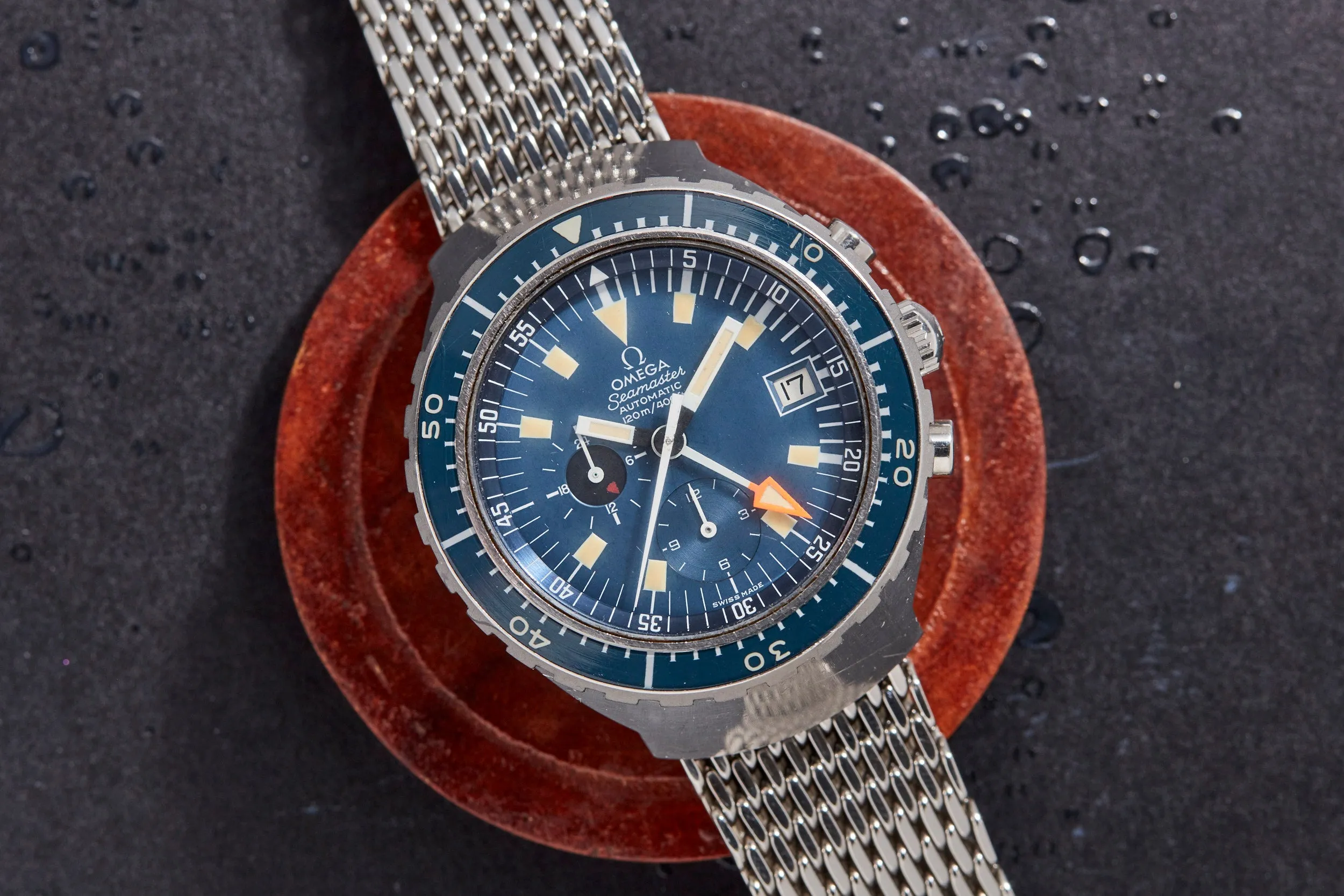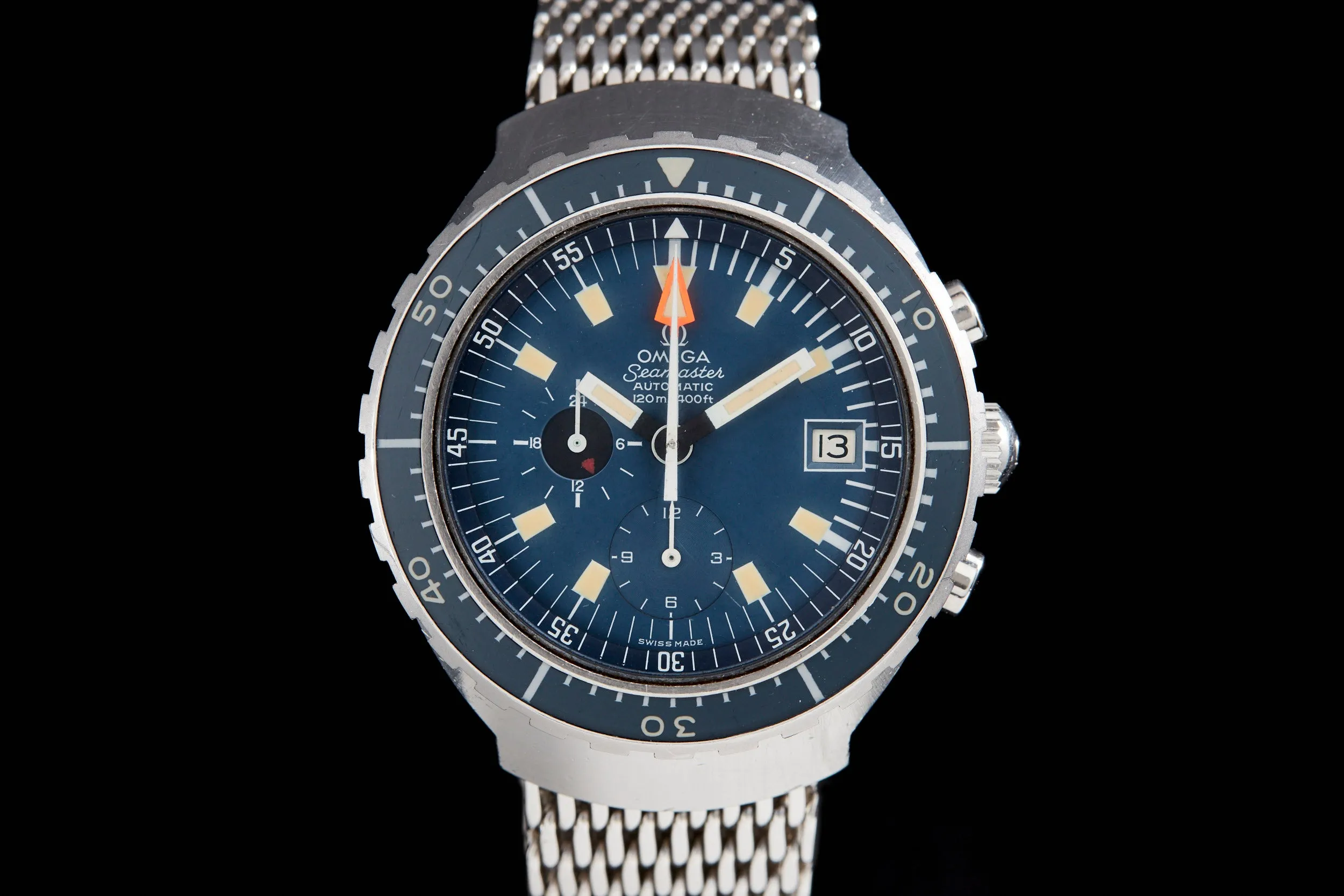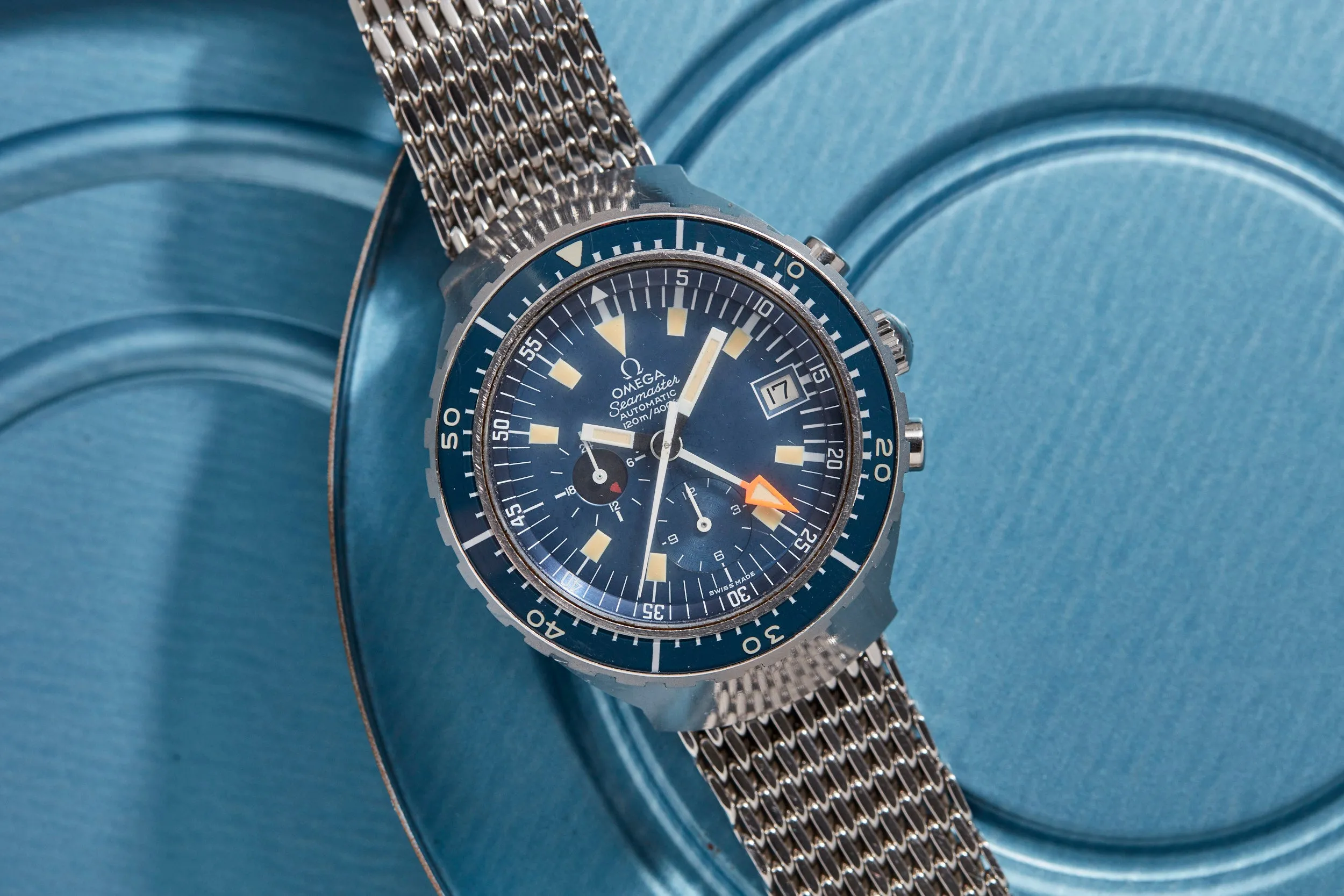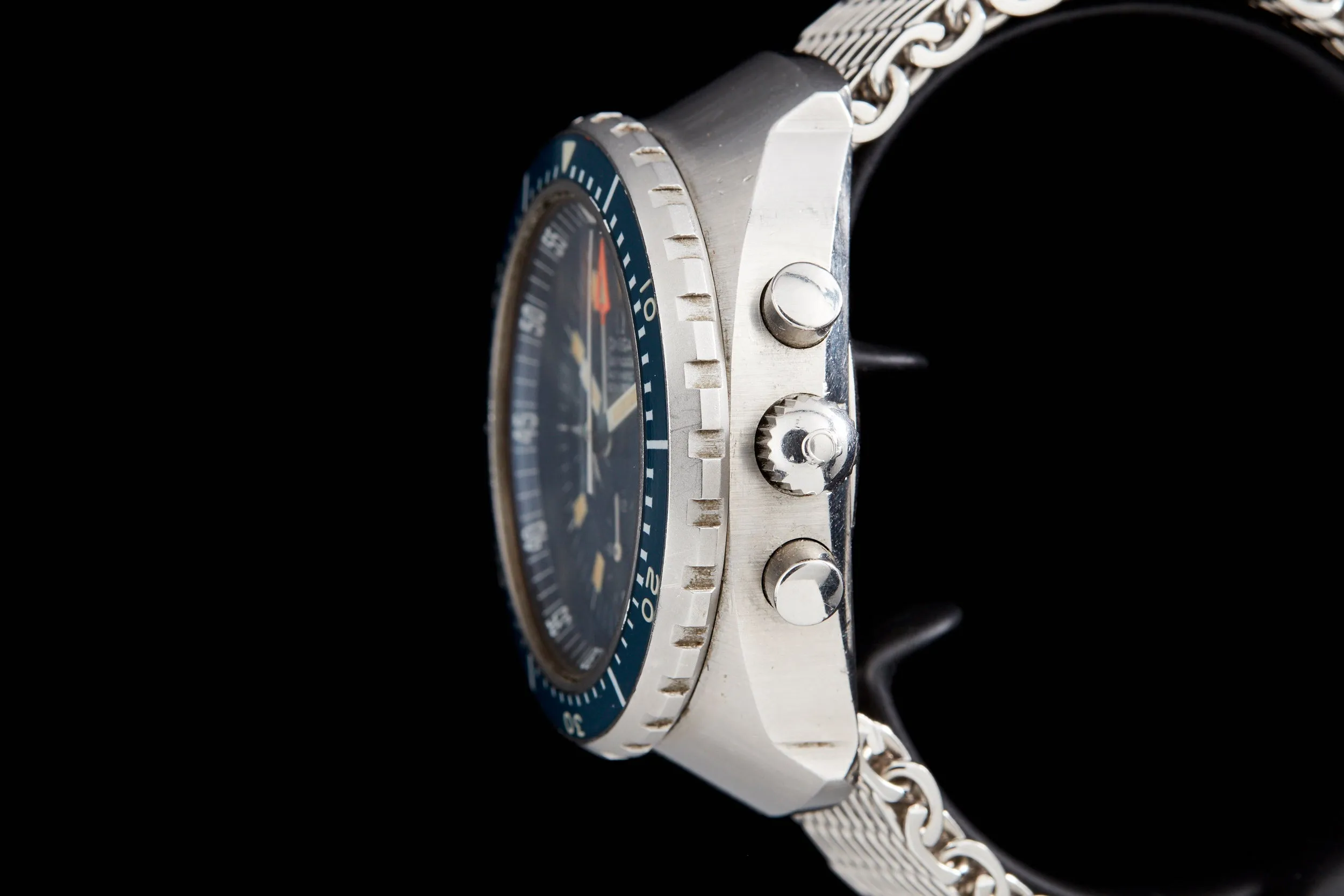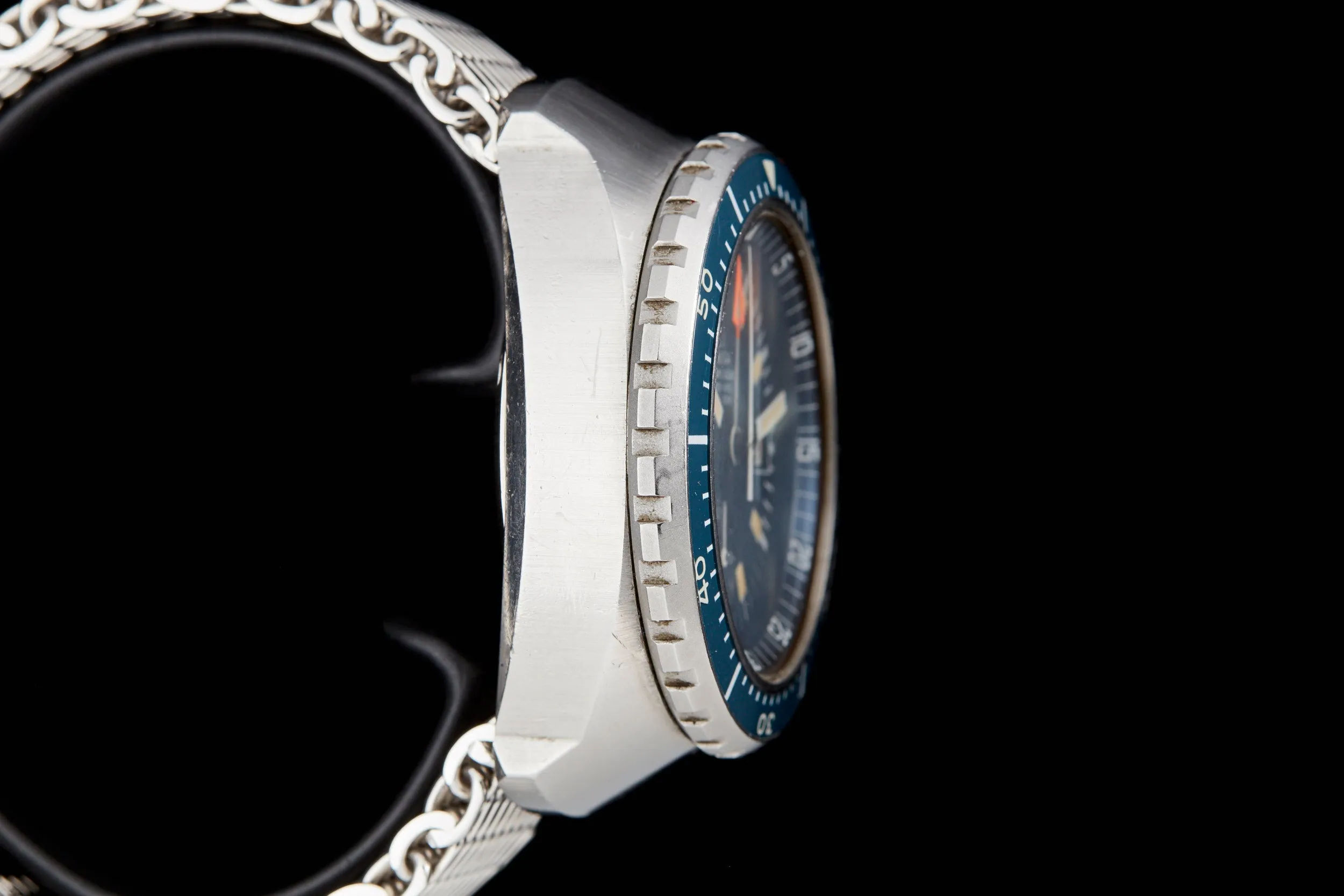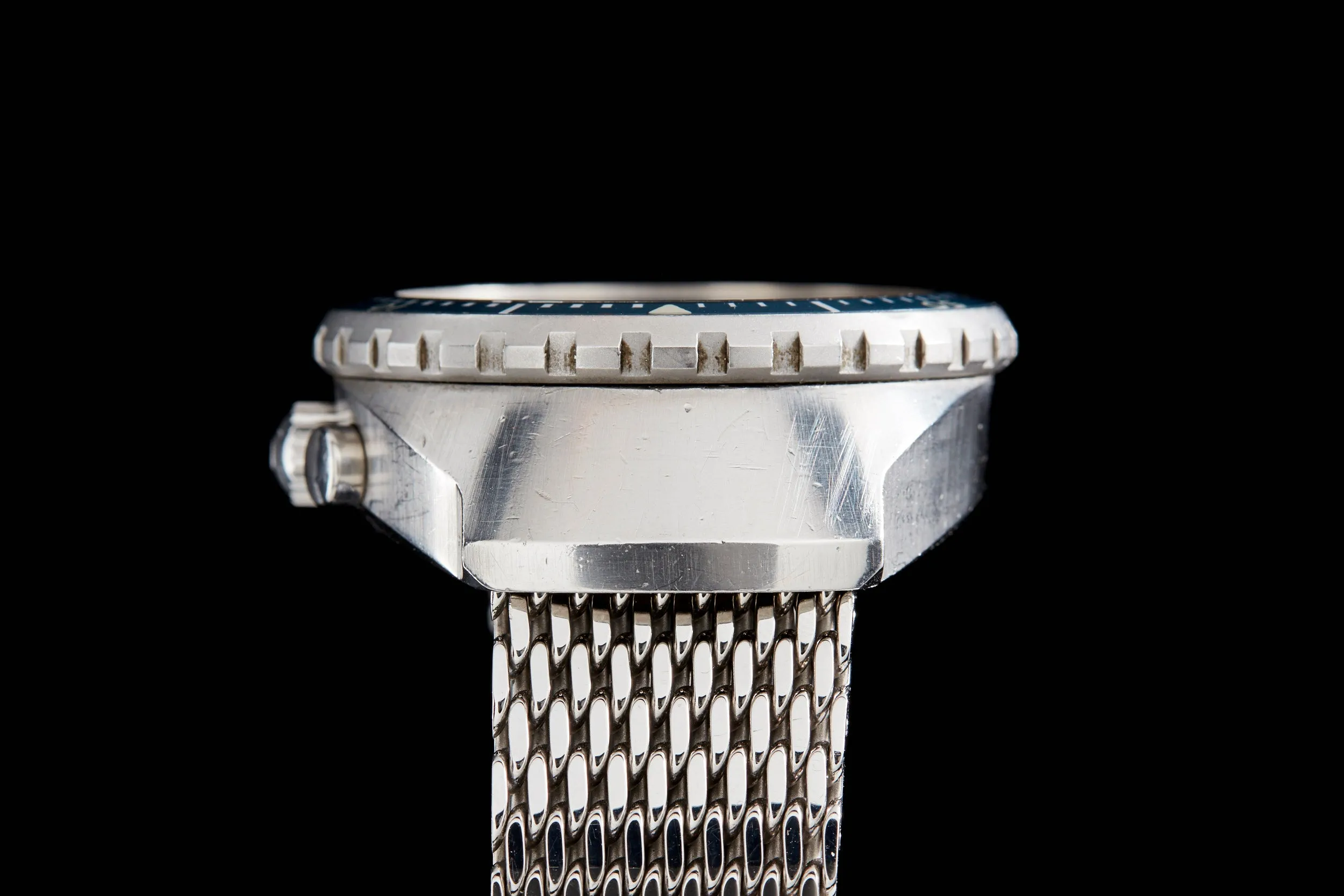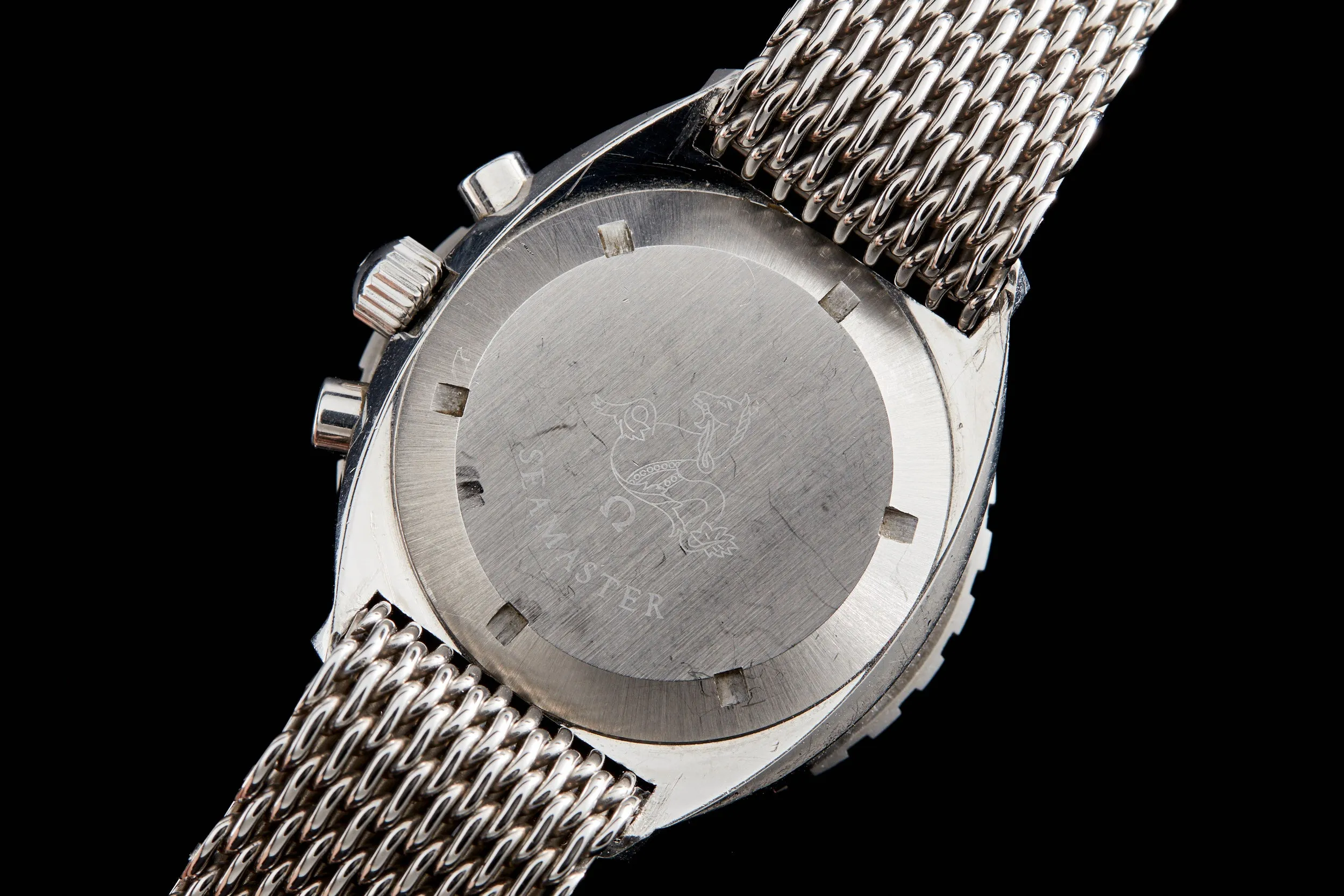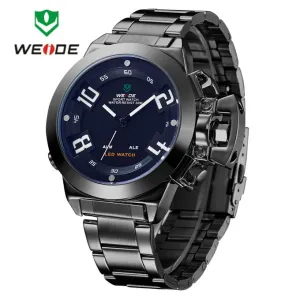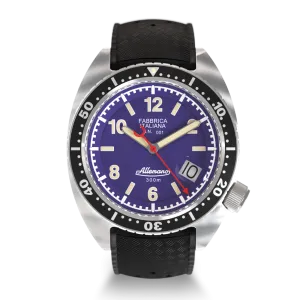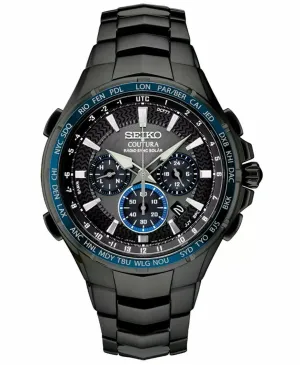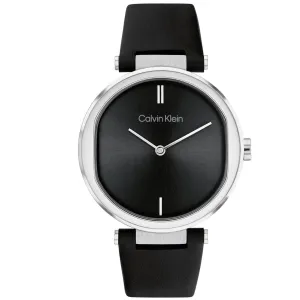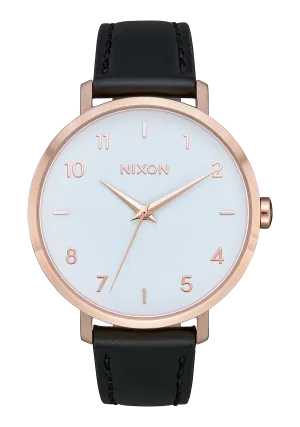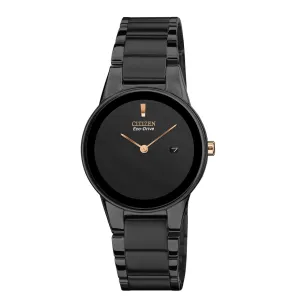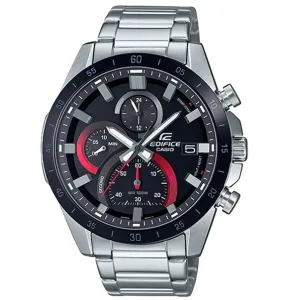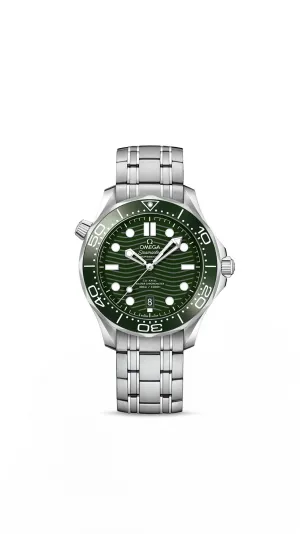Why We Love It
Make no mistake: this is a whole lot of watch.
44mm by 52mm, in point of fact, with a 19mm thickness. While the size might be a bit much for some of us landlubbers who prefer our watches to slide under a suit cuff, for the men it was designed for—professional divers—it was just right. Although modern dive computers render this sort of tool watch obsolete, it’s perfect for the sort of guy who takes comfort from wearing a big hunk of steel on his wrist.
On a mesh Omega bracelet and with that distinctive blue dial—replete with large luminous indices—this is a watch that can weather any storms without leaving you all at sea.
The Story
Omega’s no stranger to producing high grade dive watches and chronographs, so of course it was only natural that they’d be the first to make an automatic diver’s chronograph.
Released in 1972, the Seamaster Reference 176.004 chronograph addressed the timekeeping problem posed by many conventional dive watches. Many of these watches could only measure elapsed time up to an hour, and oftentimes the bezel could be knocked during a dive, leading to an inaccurate reading. The Reference 176.004 chronograph, however, removed any ambiguity with its big center chronograph hand.
This was made possible by using the Calibre 1040, a massive self-winding calibre engineered by Omega’s longtime ally, Lemania. Like many watches that are powered by the calibre—such as the Omega Speedmaster Mark II—such a massive movement necessitated the use of a massive case. With its distinctive dark blue dial and large size, it became known as “Big Blue” by collectors.




